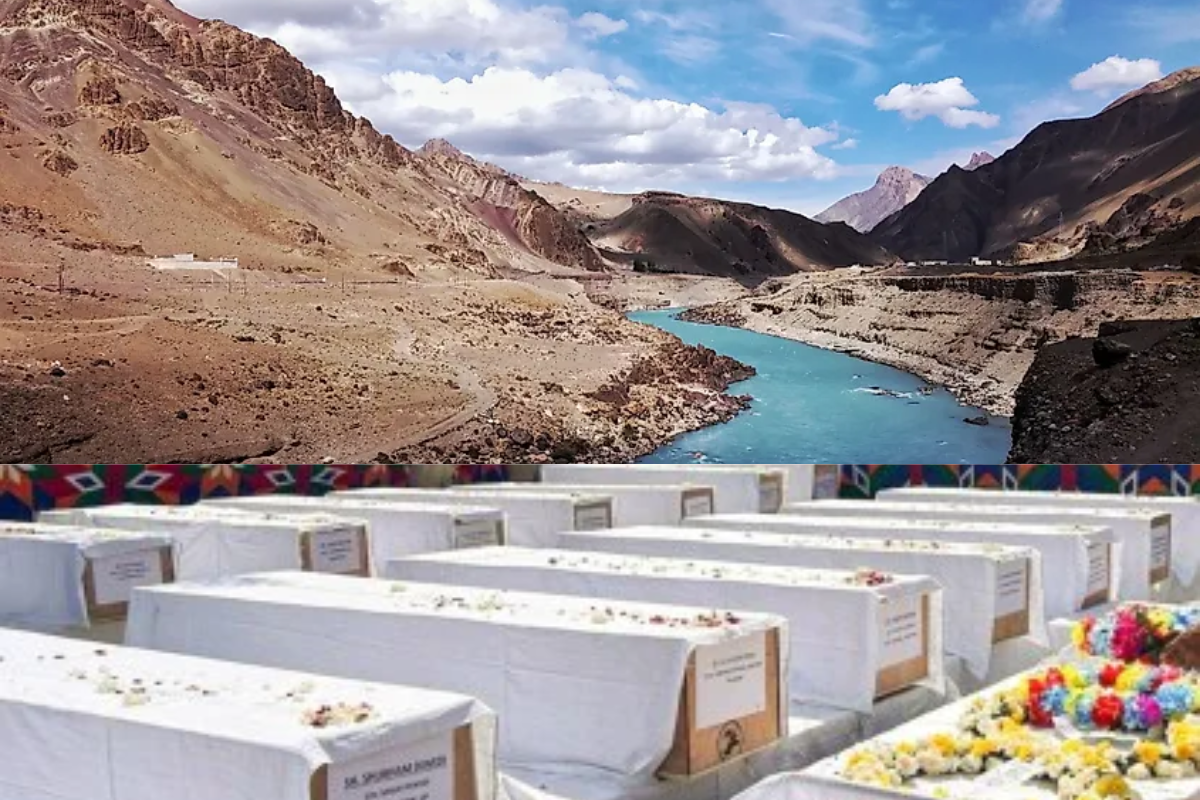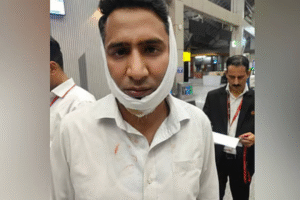After the tragic attack of Pahalgam, New Delhi put suspension on the Indus Water Treaty (IWT). The decision was taken during the Cabinet Committe on Security (CCS) Meeting on Wednesday, chaired by the PM Modi. Diplomatic ties were also downgraded with Pakistan by the Government of India in wake of this cowardly act by militants. Foreign Secretary Vikram Misri made all these decision public in a press conference. Union Home Minister Amit Shah also calls for an all-party meeting to discuss the issue.
The other major decisions taken at the CCS meeting;
The Integrated Check Post at Attari border closed with immediate effect. Those who have crossed the border with valid endorsements may return through the same route before May 1. This indicates that Pakistani nationals holding Indian visas must exit the country by that deadline.
Furthermore, the Pakistani nationals will no longer be allowed to travel to India under the SAARC Visa Exemption Scheme (SVES). All SVES visas previously issued to Pakistani nationals stand cancelled. Any Pakistani national currently in India on an SVES visa must leave the country within 48 hours.
The CCS also declared the defence, Navy, and Air advisers in the Pakistani High Commission in India as persona non grata (PNG). They are required to leave India within a week. India will also withdraw its own defence, Navy, and Air advisers from the Indian High Commission in Islamabad. These positions in both High Commissions are now considered annulled. In addition, five support staff members of the Service Advisers will be withdrawn from both missions.
Additionally, the total personnel at both the Indian mission in Islamabad and the Pakistani mission in New Delhi will be reduced from 55 to 30, with these changes to be implemented by May 1, 2025.
What is the Indus Water Treaty?
The treaty was signed in 1960 with the mediation of the World Bank; the Indus Water Treaty (IWT) is a water sharing agreement between India and Pakistan that governs the use of six rivers originating in the Himalayas. Under the treaty, India controls the eastern rivers, Ravi, Beas, and Sutlej, while Pakistan has rights over the western rivers, Indus, Jhelum, and Chenab. This arrangement has long been regarded as a rare example of successful India-Pakistan cooperation.
How the suspension of the Indus Water Treaty affects Pakistan?
For Pakistan, the treaty is crucial: nearly 80% of its irrigated agriculture depends on water from the western rivers. Any disruption or suspension of this treaty, even temporarily, threatens to destabilize its agricultural output and water security. India’s recent decision to suspend aspects of the IWT in response to the Pahalgam terror attack has therefore escalated diplomatic tensions, signaling that water, a critical lifeline for millions, could become a tool of strategic pressure.
The Pahalgam attack
On Wednesday 22 April 2025, an inhuman terrorist attack occurred in Pahalgam, a popular tourist destination in Kashmir. The assault resulted in the killing of 26 individuals, including 24 Indian nationals and 2 foreign citizens, and left 17 injured. This incident marks the deadliest attack on Indian citizens since the 2008 Mumbai attacks.
The attack took place in the Baisaran meadow, a famous tourists spot. According to reports, 4 gunmen opened fire on a group of tourists, leading to the tragic loss of lives. The assailants were reportedly armed with automatic rifles.
Eyewitness accounts paint a chilling picture of the terrorists’ intentions and methods during the Pahalgam attack. Survivors reported that the assailants first interrogated the tourists about their names, seeking to identify non-Muslims. In a horrific display of sectarian violence, those who were not identified as Muslim were summarily executed.
The terrorists reportedly went further, forcing some victims to remove their trousers in an apparent attempt to check for religious identity through circumcision. Others were ordered to recite the Kalma, a declaration of Islamic faith, with their lives hanging in the balance. Failure to comply often led to execution on the spot. Eyewitnesses recounted that the attackers demanded victims to recite Islamic verses, targeting those who failed to comply.
A militant group named “Kashmir Resistance” claimed responsibility for the attack. Indian security agencies believe this group is a front for Pakistan-based organizations like Lashkar-e-Taiba and Hizbul Mujahideen. Intelligence sources identified Saifullah Kasuri, also known as Khalid, a senior commander of Lashkar-e-Taiba, as the mastermind behind the massacre. Preliminary investigations also revealed the involvement of two local terrorists, Adil Guree from Anantnag and Aasif Shaikh from Sopore.
Advertisement




